Who We Are
Meet the RESTORE Science Program Team
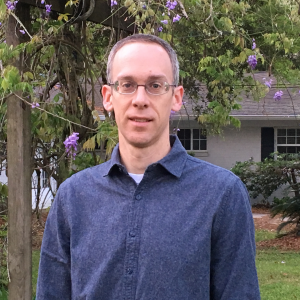
Dr. Julien Lartigue is the Director of NOAA’s RESTORE Science Program. Julien uses his experience working at academic institutes across the Gulf States and with federal and state agencies to connect the research and information needs of resource managers to the problem-solving capacity within the research community. As a long-time resident of the Gulf Coast, he is committed to the conservation and wise-management of the region’s natural resources and the future of its coastal communities. Julien has a BA in Biology from Swarthmore College and holds a PhD in Marine Sciences from the University of South Alabama.
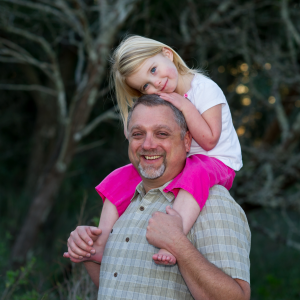
Mr. Frank Parker is the Associate Director of NOAA’s RESTORE Science Program within the National Ocean Service’s National Centers for Coastal Ocean Science. In that role, he manages coordination, planning, and implementation efforts for the Science Program, including funding competitions, and ensures program findings and tools are used to support resource management and sustainability for the Gulf of Mexico ecosystem. Frank has served in several NOAA positions, including special assistant to the Deputy Assistant Administrator for the Office of Oceanic and Atmospheric Research (OAR) as a Knauss Marine Policy fellow; an ecologist in OAR’s Office of Policy, Planning, and Evaluation; the program coordination officer for research for NOAA’s Under Secretary; headquarters liaison for the NOAA Chief Scientist during the Deepwater Horizon environmental disaster; and National Coordinator for NOAA’s eight Regional Teams (collectively, the Regional Collaboration Network). Frank holds a B.A. and M.S. in biology from Florida International University and did advanced graduate work at the College of William and Mary’s Virginia Institute of Marine Science. Frank graduated from NOAA’s Leadership Competencies Development Program in 2015.
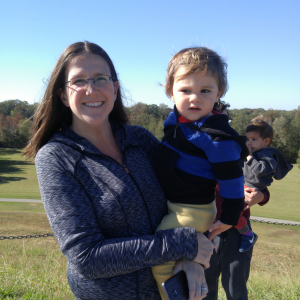
Dr. Caitlin Young is the Science Coordinator for the NOAA RESTORE Science Program. As Science Coordinator she works with Science Program awardees to transfer research results to resource managers to promote a sustainable Gulf of Mexico. Caitlin leads the Science Program efforts to synthesize environmental and human dimension research data available for the Gulf of Mexico to design funding competitions. Caitlin has a BS in Geology from Tulane University and a PhD in Geosciences from Stony Brook University.
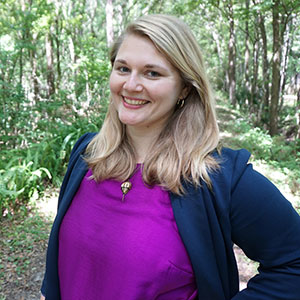
Dr. Hannah O. Brown is the Communications & Engagement Specialist for the NOAA RESTORE Science Program. Hannah uses her experience as a social scientist, science communicator, and journalist to build a network of resource users, managers, and scientists in the Gulf. Hannah is a Florida native with deep roots in the state who has researched the human dimensions of Gulf Coast fisheries. She holds a BA in Psychology from New College of Florida, a MA in Mass Communications from the University of Florida, and a PhD in Interdisciplinary Ecology from the University of Florida.
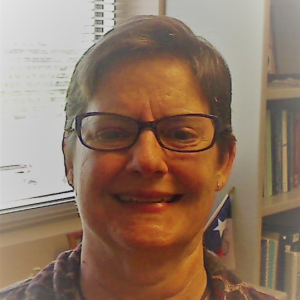
Dr. Becky Allee is a Fisheries Biologist and Senior Scientist for NOAA’s Office for Coastal Management-Gulf of Mexico region, and Senior Advisor for NOAA’s RESTORE Science Program. Dr. Allee has over twenty years of experience in ecosystem assessment and habitat characterization, with the majority of this time invested in overseeing program operations, evaluations, and policies to advance the mission, goals and objectives of various NOAA programs. She has been working specifically on environmental issues and the human dimension connections related to the Gulf of Mexico Large Marine Ecosystem for the past ten years. Becky works closely with researchers to ensure the outcomes of NOAA’s science investments support the needs of resource managers and decision makers. She has a BS and MS in Biology from Stephen F. Austin State University and holds a Ph.D. in Biological Sciences from the University of Arkansas.
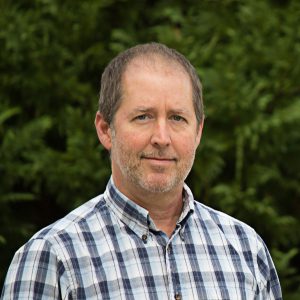
Dr. Pete Key works for the Ecotoxicology Branch of the Stressor Detection and Impacts Division at the National Ocean Service’s National Centers for Coastal Ocean Science Charleston Laboratory and is on a partial detail with the NOAA RESTORE Science Program. He supports the Director and Associate Director of the Science Program by providing technical and logistical support for funded projects and upcoming funding opportunities. Pete has worked on many projects in his career at NOAA ranging from developing crustacean life cycle tests for screening contaminants to investigating effects of oil spill dispersants on sensitive estuarine species. He has published over 60 manuscripts in scientific journals and has given numerous presentations at national and international meetings. Pete has a BS in Biology from Clemson University and an MS and PhD in Environmental Health from the University of South Carolina.

Ms. Miranda Madrid is a Science Policy Fellow with the National Academies Gulf Research Program. Miranda received her B.S. in environmental sciences from the University of Notre Dame and earned her M.S. in marine science from the University of Texas Marine Science Institute in 2021. Her graduate research focused on evaluating the impact of local, long-term monitoring at the Mission-Aransas National Estuarine Research Reserve, particularly how coastal wetland plants are responding to changes in climate and how managers use this long-term information to make decisions. Prior to graduate school, Miranda gained experience in the non-profit sector, honing her project management abilities and leadership skills at the Botanical Research Institute of Texas in Fort Worth, TX and at The GrowHaus in Denver, CO. These experiences continue to influence her interest in community engagement and commitment to service. She currently serves on the Notre Dame Women Connect Newsletter Team and the National Network for Ocean and Climate Change Interpretation’s Communications committee and JEDI team. A native Texan, Miranda is interested in tackling issues through a social justice lens and promoting science that impacts Gulf Coast communities.
 Official websites use.gov
A .gov website belongs to an official government organization in the United States.
Official websites use.gov
A .gov website belongs to an official government organization in the United States.
 Secure .gov websites use HTTPS
A lock or https:// means you’ve safely connected to the .gov website. Share sensitive information only on official, secure websites.
Secure .gov websites use HTTPS
A lock or https:// means you’ve safely connected to the .gov website. Share sensitive information only on official, secure websites.